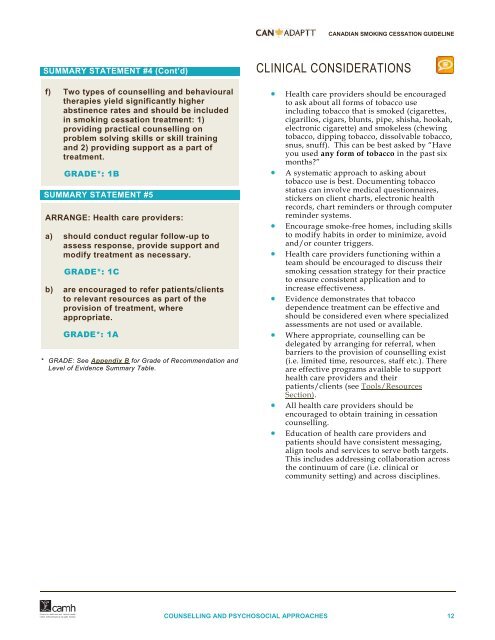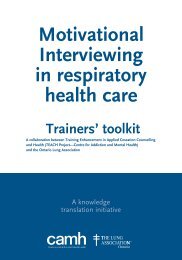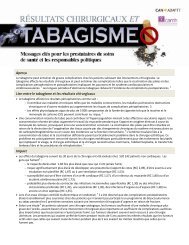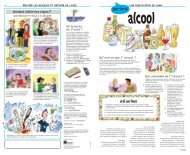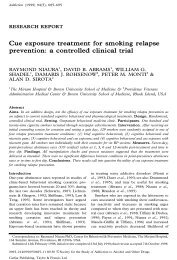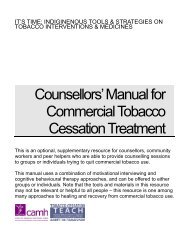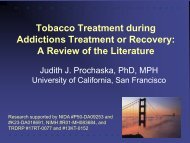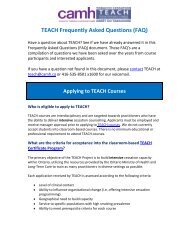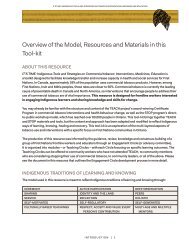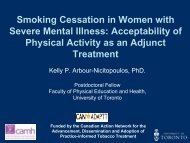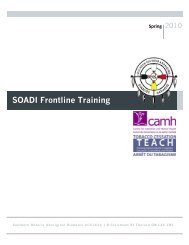Canadian Smoking Cessation Clinical Practice Guideline
Canadian Smoking Cessation Clinical Practice Guideline
Canadian Smoking Cessation Clinical Practice Guideline
Create successful ePaper yourself
Turn your PDF publications into a flip-book with our unique Google optimized e-Paper software.
CANADIAN SMOKING CESSATION GUIDELINESUMMARY STATEMENT #4 (Cont’d)f) Two types of counselling and behaviouraltherapies yield significantly higherabstinence rates and should be includedin smoking cessation treatment: 1)providing practical counselling onproblem solving skills or skill trainingand 2) providing support as a part oftreatment.GRADE*: 1BSUMMARY STATEMENT #5ARRANGE: Health care providers:a) should conduct regular follow-up toassess response, provide support andmodify treatment as necessary.GRADE*: 1Cb) are encouraged to refer patients/clientsto relevant resources as part of theprovision of treatment, whereappropriate.GRADE*: 1A* GRADE: See Appendix B for Grade of Recommendation andLevel of Evidence Summary Table.CLINICAL CONSIDERATIONSHealth care providers should be encouragedto ask about all forms of tobacco useincluding tobacco that is smoked (cigarettes,cigarillos, cigars, blunts, pipe, shisha, hookah,electronic cigarette) and smokeless (chewingtobacco, dipping tobacco, dissolvable tobacco,snus, snuff). This can be best asked by “Haveyou used any form of tobacco in the past sixmonths?”A systematic approach to asking abouttobacco use is best. Documenting tobaccostatus can involve medical questionnaires,stickers on client charts, electronic healthrecords, chart reminders or through computerreminder systems.Encourage smoke-free homes, including skillsto modify habits in order to minimize, avoidand/or counter triggers.Health care providers functioning within ateam should be encouraged to discuss theirsmoking cessation strategy for their practiceto ensure consistent application and toincrease effectiveness.Evidence demonstrates that tobaccodependence treatment can be effective andshould be considered even where specializedassessments are not used or available.Where appropriate, counselling can bedelegated by arranging for referral, whenbarriers to the provision of counselling exist(i.e. limited time, resources, staff etc.). Thereare effective programs available to supporthealth care providers and theirpatients/clients (see Tools/ResourcesSection).All health care providers should beencouraged to obtain training in cessationcounselling.Education of health care providers andpatients should have consistent messaging,align tools and services to serve both targets.This includes addressing collaboration acrossthe continuum of care (i.e. clinical orcommunity setting) and across disciplines.COUNSELLING AND PSYCHOSOCIAL APPROACHES 12


